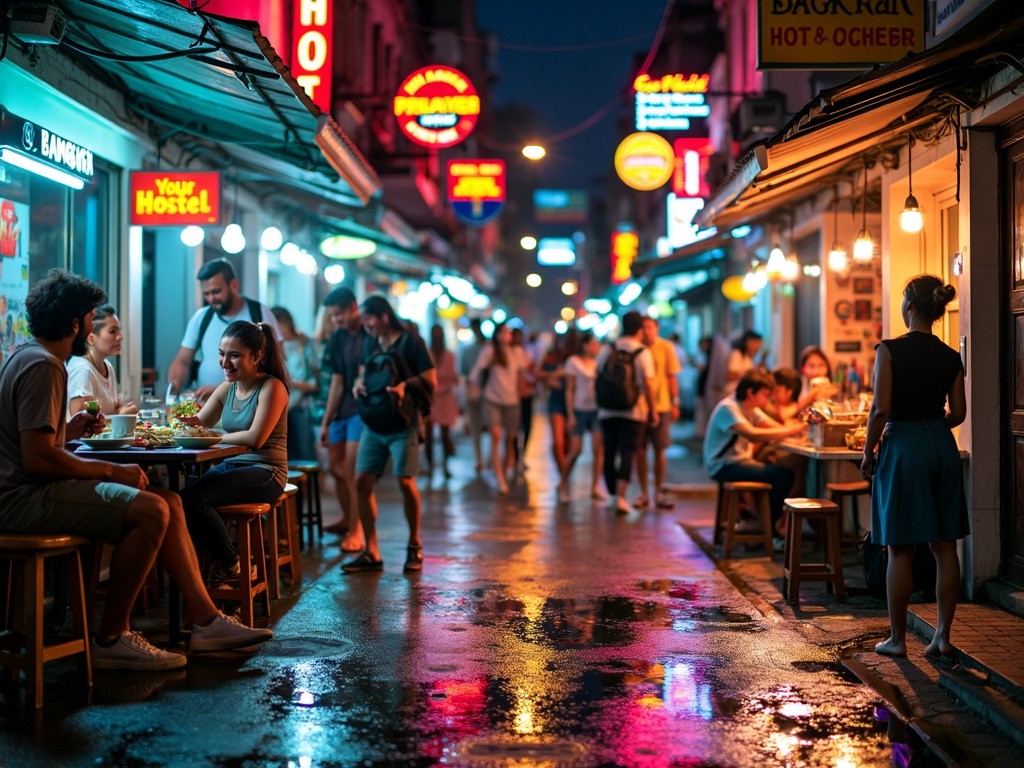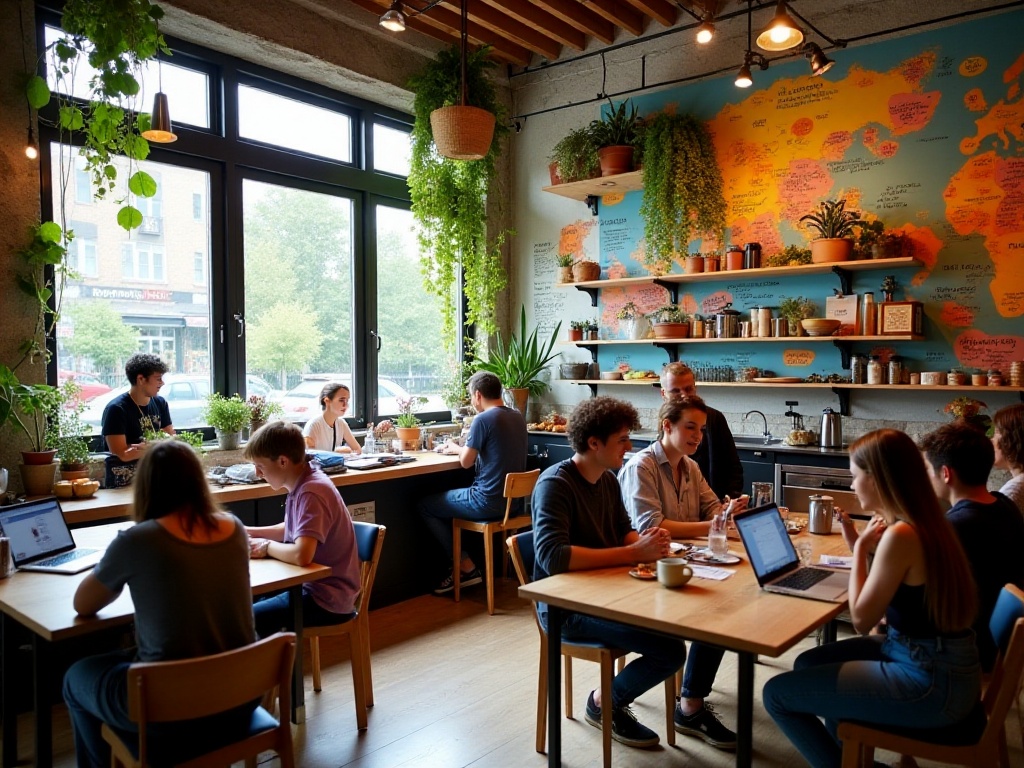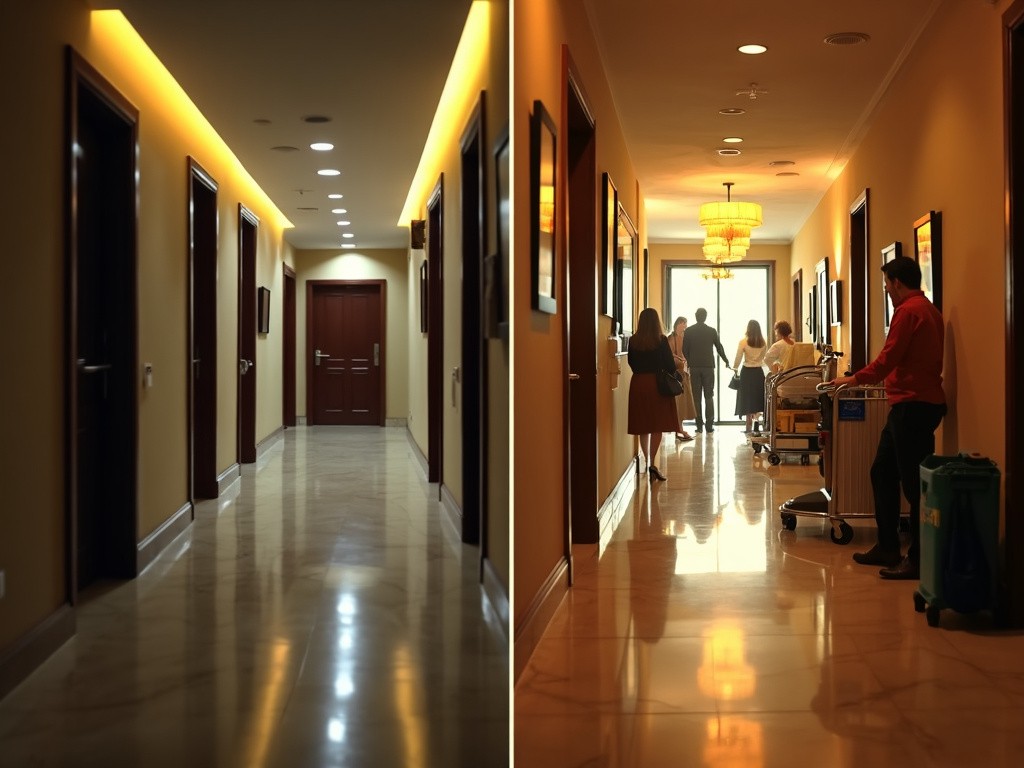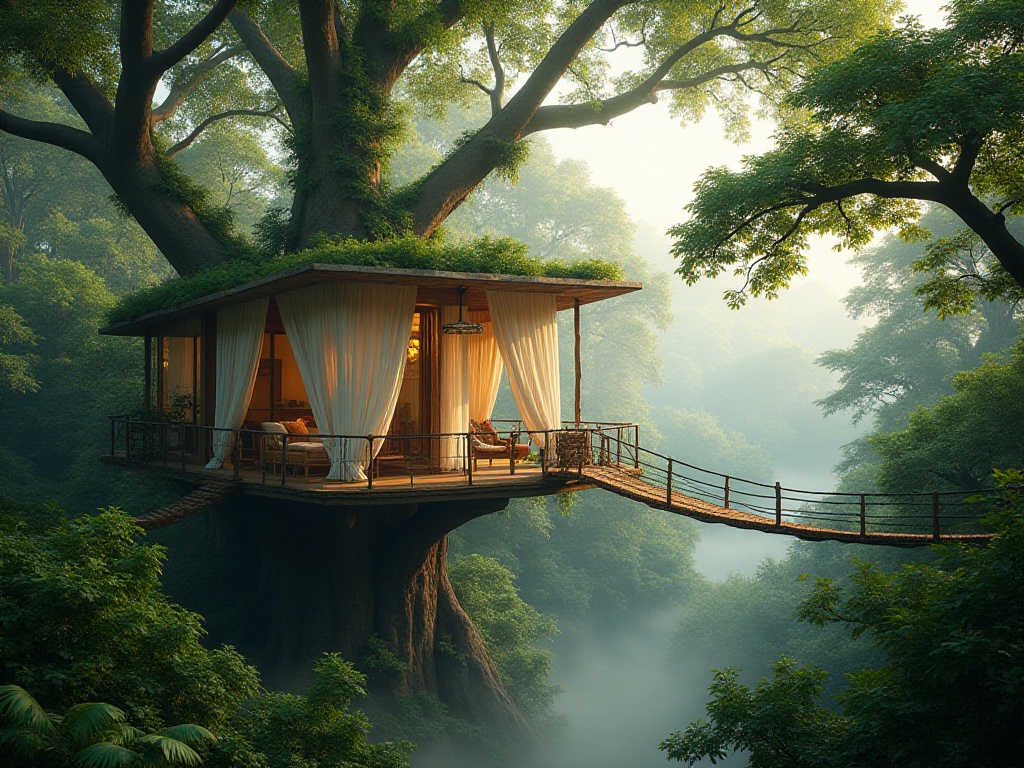
Introduction
Have you ever wondered why today's hotel experience is so dramatically different from a decade ago? As a veteran with 20 years in the hotel industry, I have witnessed revolutionary changes in this field. Let me take you into this fascinating world and show you the remarkable transformations that have occurred in the global hospitality industry over these years.
Changes and Constants
When I first entered the industry in 2004, the global hotel sector was still in a relatively traditional phase. Five-star hotels were like magnificent palaces, with traditional service models and strict hierarchical systems being industry standards. However, as times evolved, the accommodation industry underwent dramatic changes.
The traditional hotel industry has experienced three major transformations over the past 20 years. The first was the service transformation after the 2008 financial crisis, the second was the model transformation brought by the sharing economy in 2015, and the third was the digital transformation triggered by the 2020 pandemic. Each transformation has injected new vitality into the industry.
According to the World Tourism Organization, the global hotel industry's market size grew from $623 billion in 2004 to approximately $1.06 trillion in 2023. Behind these numbers lies the industry's continuous adaptation and innovation.
New Species
In recent years, new forms of accommodation have emerged like bamboo shoots after rain. Boutique hotels are a typical example. I remember seeing a boutique hotel in Tokyo's Ginza district in 2019, which, despite only being 280 square meters, achieved excellence in design and service. They perfectly combined traditional Japanese aesthetics with modern technology to create a unique staying experience. Though this hotel only had 12 rooms, its annual revenue was more than triple that of ordinary hotels of the same size.
Another notable new species is the shared accommodation platform. According to Airbnb's data, the global shared accommodation market size reached $189 billion in 2023, maintaining an annual growth rate above 15%. This model not only changed traditional accommodation methods but, more importantly, created a new travel culture.
Technology Empowerment
Driven by technological development, the hotel industry's service model has undergone revolutionary changes. I remember when a hotel in Dubai first introduced robot food delivery service in 2015, many people were skeptical. Now, intelligent services have become industry standard.
Statistics show that global hotel industry investment in smart devices and systems reached $46.3 billion in 2023, nearly 8 times more than a decade ago. From smart locks to voice control systems, from self-check-in machines to delivery robots, technology is reshaping the industry's service model.
Human Care
However, amidst all these changes, one thing has remained constant: the pursuit of human care. I remember once at a small hotel in Switzerland, when the owner learned I had a cold, she specially prepared a pot of traditional local herbal tea. This kind of warmth is something no technology can replace.
Modern hotels increasingly emphasize personalized service. According to McKinsey's research, over 75% of consumers prefer hotels that offer personalized services, even if it means paying higher prices.
Promising Future
Looking ahead, I believe the hotel accommodation industry will continue to evolve. Metaverse technology might bring innovations in virtual booking experiences, artificial intelligence will further optimize personalized services, and sustainable development concepts will profoundly influence the industry's direction.
According to PwC's forecast, the global hotel industry market size will exceed $1.5 trillion by 2030. Behind this number lie countless possibilities for innovation and breakthrough.
Suggestions
For those about to embark on a journey, I have the following suggestions:
First, focus more on the experience rather than just hardware facilities when choosing accommodation. Many characteristic homestays, though less well-equipped than star-rated hotels, can provide unique cultural experiences.
Second, make good use of technology. Through big data analysis and user reviews on various booking platforms, you can more accurately find suitable accommodation. Statistics show that over 80% of travelers check at least 6 user reviews before booking.
Finally, maintain an open and inclusive attitude. Each form of accommodation has its unique charm; don't limit yourself to traditional choices. Try different types of accommodation, and you might get unexpected surprises.
Conclusion
Looking back at the past 20 years from 2024, I deeply feel that every transformation in the hotel accommodation industry has been a response to changes in people's lifestyles. The future of this industry will continue to be written jointly by technological innovation and human care.
What do you think hotels of the future will be like? Feel free to share your thoughts in the comments section. Let's look forward to more exciting possibilities that the accommodation industry will bring us.
Next
Budget-Friendly Hostels in Southeast Asia: A Solo Traveler's Guide
Ah, Southeast Asia! The land of vibrant street markets, ancient temples, and pristine beaches. But for the solo traveler, it's so much more – it's a playground of self-discovery, cultural immersion, and unforgettable connections. And at the heart of this solo adventure? Hostels, my friends. These budget-friendly havens are the unsung heroes of the backpacker trail, offering not just a place to rest your head, but a launchpad for epic journeys.
From Hostels to Luxury Hotels: A Backpacker's Global Accommodation Guide
A comprehensive guide to accommodation options, covering traditional hotels, boutique hotels, B&Bs, self-catering units, as well as specialty lodging like mountain cabins, resorts, and alternative options including home exchange and work exchange programs
The Great Escape: Hotels Bask in Summer's Radiant Glow
In a world once silenced by the echoes of empty lobbies and vacant rooms, a new symphony of rolling luggage and excited chatter is rising. The hotel industry, long battered by the storm of a global pandemic, is finally seeing the sun peek through the clouds. As we stand on the precipice of a travel renaissance, local hotels are witnessing a surge in occupancy rates that's nothing short of miraculous.
Next

Budget-Friendly Hostels in Southeast Asia: A Solo Traveler's Guide
Ah, Southeast Asia! The land of vibrant street markets, ancient temples, and pristine beaches. But for the solo traveler, it's so much more – it's a playground of self-discovery, cultural immersion, and unforgettable connections. And at the heart of this solo adventure? Hostels, my friends. These budget-friendly havens are the unsung heroes of the backpacker trail, offering not just a place to rest your head, but a launchpad for epic journeys.

From Hostels to Luxury Hotels: A Backpacker's Global Accommodation Guide
A comprehensive guide to accommodation options, covering traditional hotels, boutique hotels, B&Bs, self-catering units, as well as specialty lodging like mountain cabins, resorts, and alternative options including home exchange and work exchange programs

The Great Escape: Hotels Bask in Summer's Radiant Glow
In a world once silenced by the echoes of empty lobbies and vacant rooms, a new symphony of rolling luggage and excited chatter is rising. The hotel industry, long battered by the storm of a global pandemic, is finally seeing the sun peek through the clouds. As we stand on the precipice of a travel renaissance, local hotels are witnessing a surge in occupancy rates that's nothing short of miraculous.


